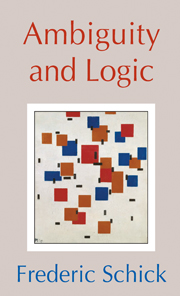4 - In Support of Persuasion
Published online by Cambridge University Press: 10 November 2009
Summary
THE common theory of motivation refers to what people want and believe. It speaks of motives as reasons, and it holds that people's reasons are composed of desires and beliefs, that a person has a reason for choosing (and for doing) a where he wants to choose (or take) an action of a certain sort b and believes a is of sort b. I have argued that this is too thin, that we need to bring in also how he sees or understands a, that he has a reason for choosing (and for doing) a where he wants to choose (or take) an action of a certain sort b and believes a is of sort b – and sees a as being of that sort. This seems to me not only correct but useful and suggestive. Others resist the idea. What are their grounds for resisting it?
My three-part idea brings in people's seeings. These are not seeings of houses or trees but of actions or events or situations – I will use “situations” as a catchall for this. They are our grasps of those situations, our construals or understandings of them. They are our reports of them (to ourselves), our conceivings of them. Such seeings-as aren't retinal; the blind have no problem with them. An inner eye is engaged.
This last only adds a metaphor to a long string of synonyms. The question remains: what are such seeings? And to that question I have no answer. I think the concept can't be defined in any noncircular way, that it is too basic a concept to be laid out in terms of others.
- Type
- Chapter
- Information
- Ambiguity and Logic , pp. 60 - 78Publisher: Cambridge University PressPrint publication year: 2003



